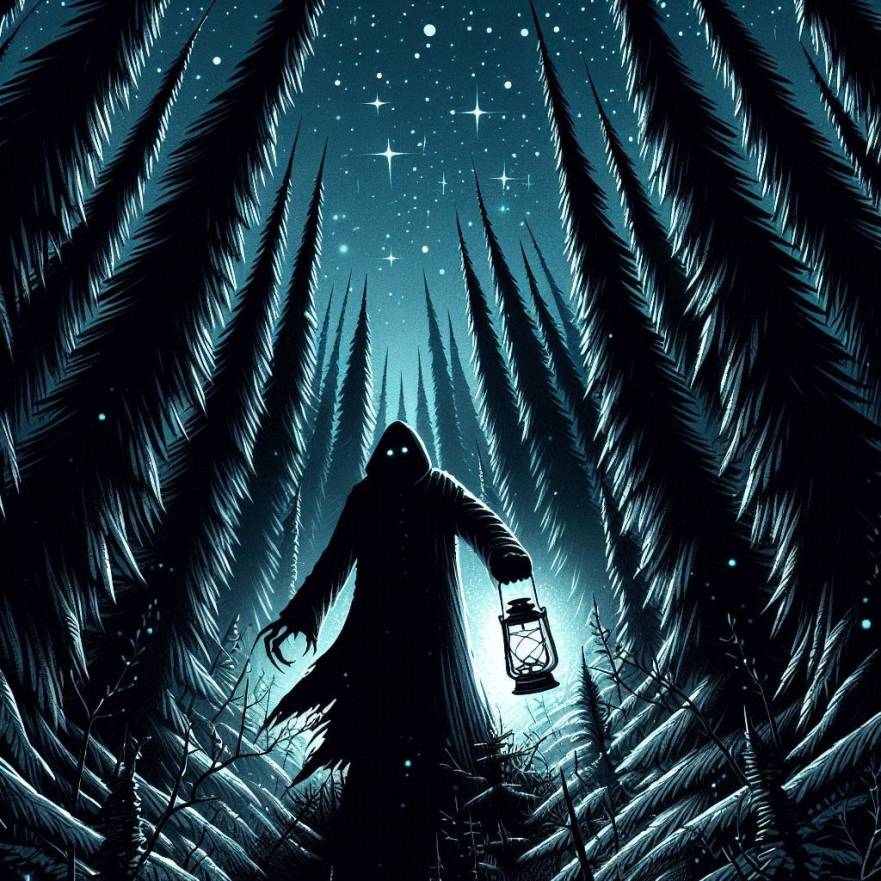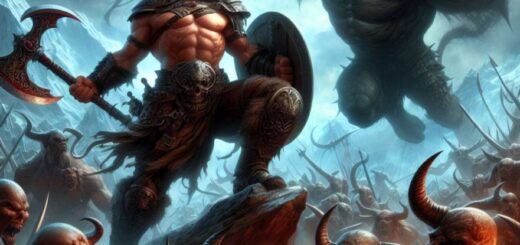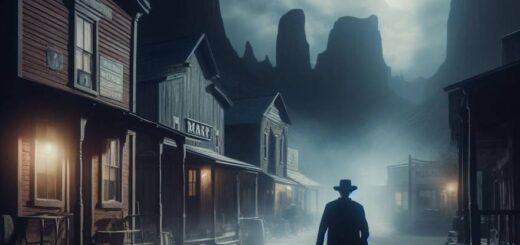Blood Trail by Gregory Meece

Blood Trail by Gregory Meece
Urban living offers advantages, like proximity to work and a vibrant lifestyle. However, after a decade of noise and crime, Robin and I yearned for serenity and safety. Our hearts were captured by a rural property—a former Christmas tree farm.
Joanne Nash, our realtor, shared Reynard Farm’s history, but we later discovered she had omitted crucial details to secure the sale. Had we known of our new home’s backstory, we would have quickly reconsidered.
According to Joanne’s account, the history of the property sheds light on the origins of the Christmas tree farm. Jonathan and Margaret Reynard once cultivated a variety of crops, which they sold to local grocers. As they aged, the physical demands of fieldwork became too much for them. After Margaret’s passing, Jonathan handed over the land to their young son, David Reynard. David may have inherited the family’s business, but he did not inherit his parents’ work ethic. He devised a different plan for the farm
David transformed the property to bear a crop that required less daily attention: Christmas trees. Unlike produce crops, the trees didn’t demand the same physical labor. After planting rows of firs, spruces, and pine saplings, all that was needed was occasional pruning to maintain the classic Christmas tree shape that everyone desired. And harvesting involved simply handing out small bow saws to the families when they journeyed to the farm to select their perfect holiday trees. As customers adorned their trees during the joyous season, David counted his cash.
Our realtor’s story ended there. Despite David’s laziness, the property must have held treasured memories for the families who visited during Christmas preparations. We clung to the belief that the place still nurtured an abundance of heartwarming magic. As Charlie Brown’s friend Linus might have put it: “Nothing but sincerity as far as the eye can see.” Plus, we got an exceptionally good deal, so we made the farm our new home.
When we moved in, the only remnants of David’s tree farm were some random, overgrown specimens. Now too tall for even the grandest of foyers, these were the trees planted long ago that never found buyers.
Unfortunately, Robin and I discovered that living on the former Christmas tree farm would soon take a troubling turn.
Our first year there, we huddled together in our cozy living room, the glow of an old TV movie casting shadows on the walls. Outside, the winter solstice held the world in its icy grip. As the clock ticked during this longest night of the year, we felt a strange energy—a presence that seemed to linger just beyond the frosted window. And then, in that quiet darkness, we had our first sighting.
“Thomas, did you see a light out back?” Robin asked.
“Probably the moon,” I replied.
“I saw a small light moving across the lawn. You’d better go check it out.”
I donned my coat and went outside. Robin was correct. Near the woods, there was a man swinging a lantern as he crept across our property.
“May I help you?” I asked in a friendly yet wary tone.
He was a younger fellow. A mop of brown curls peeked out from beneath his wool cap. Beneath a vintage wool hunting jacket, he wore a plaid shirt. His tone of voice was emotionless, and he spoke without looking up. “Following the blood trail,” was all he muttered.
During hunting season, we often heard shots echoing at night. That evening, however, the woods had been silent. Perhaps the man was a bow hunter tracking a wounded deer—though I didn’t see a weapon.
“I don’t think it came through my yard,” I told the man, emphasizing my so he understood this was private property. I didn’t begrudge the man searching for his quarry, nor did I want him to linger.
He disappeared into the dark woods, and I listened until the sound of his footfall crunching the snow-covered decayed leaves faded as well. I returned to the house, eager to tell Robin about my weird encounter.
“Let’s hope that’s the end of it,” she said.
It wasn’t.
Exactly twelve months later, Robin and I again spotted the light moving near the woods. Robin turned to me and asked, “Isn’t this the night of the winter solstice? Do you think someone else is looking for a wounded deer?”
Determined not to let our property become a hiking trail, I fetched my flashlight and hurried out of the house. I aimed the beam toward the moving figure. It was a man carrying a lantern. He looked all too familiar.
“Aren’t you the guy from last year?” I asked.
“Following the blood trail,” he replied.
Frustrated, I reiterated, “You can’t keep searching our yard for carcasses. Understand?” He neither apologized nor offered an excuse before dissolving into the blackness.
Fearing future visits, I secured a motion-sensing camera to a tree the next day. I hoped it would capture only images of wandering raccoons or rabbits. For a year, it did. Until next December.
Knowing it was the solstice—the same day as the previous sighting—I positioned myself by the window. Soon, the eerie light reappeared, and I hurried to confront the man, shouting, “I have you on camera, and I’m calling the cops!”
Dressed as before, in the same monotone, he said, “Following the blood trail.”
Indignant, I shouted, “Tell that to the police!”
When he was gone, I returned inside and searched the camera card for his image—the evidence I would need to file a report. But no matter how many times I looked, there was no man and no lantern. That was the night Robin and I decided to move back to the city.
Years later, at a party, Robin and I crossed paths with Joanne Nash—the realtor who had managed our former home’s purchase. We sat around a fireplace, sipping hot toddies, when the conversation turned to the Reynard property. When Robin recounted the tale of the mysterious trespasser, Joanne’s face flushed a bright pink—not from the whisky in her drink.
“So, what’s the rest of the story?” Robin asked. That’s when the truth emerged.
“After David Reynard began selling Christmas trees, tragedy struck,” Joanne began. “It happened on the first day of winter. A snowfall crept in. The senior Renard grabbed his log-carrying tote and told his son he was going to the woods to collect firewood. When he didn’t return, David grew concerned. He took his lantern and headed into the woods, following the footsteps his father had left in the blanket of powdery crystals.
“No one knows what transpired that night, but neither man ever returned home. No bodies were found—only Jonathan Reynard’s bloodied tote.
“With all three members of the Reynard family gone, the bank took possession of the property. That’s when I assisted you in purchasing it—at a very favorable price, if I remember correctly.”
After hearing the unsettling story, no price would suffice. I asked, “What do people speculate happened to David and his father?”
Joanne’s expression turned grave as she spoke, “Some cultures associate the winter solstice, or ‘Yule,’ with deities or legendary figures. It marks the shortest day of the year and, therefore, a transition back into the light. For many, this has evolved into Christian traditions, most notably, Christmas. However, for others, the date remains tied to older pagan beliefs. In the rural area surrounding your old home, locals whisper that a legendary creature still roams the land on the night of the winter solstice. They believe it emerges to thwart anyone who promotes what it considers the heretical Christianization of ancient pagan traditions.”
I downed the remainder of my drink—my tongue had gone dry—and uttered, “Like Christmas trees?”
“The villagers believe that David and Jonathan Reynard suffered the wrath of the creature,” Joanne said. “Both met their demise the night of the solstice.”
“And the trespasser, or whatever it was that I met?” I asked nervously.
“Both father and son were killed, but the founder of the Christmas tree farm, David, faced an additional torment. For eternity, on the longest night of the year, his spirit was condemned to return to the farm, seeking but never finding his father’s bloodied remains. And the creature would be watching.”
* * * * THE END * * * *
Copyright Gregory Meece 2024
























Yikes! Creepy stuff! I’ll never look at a Christmas tree the same again.